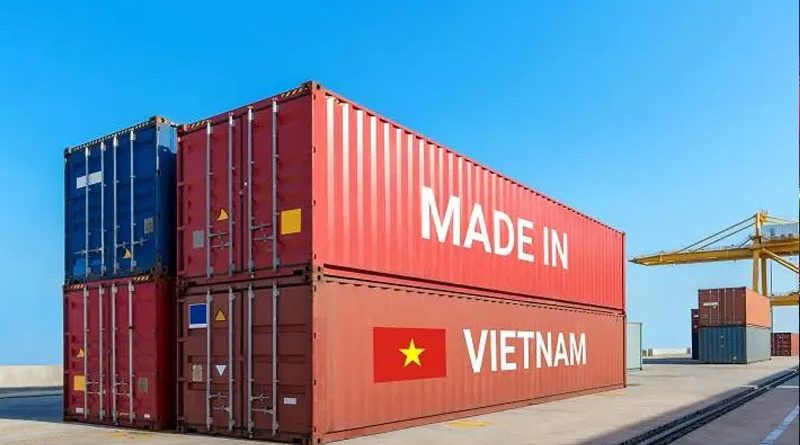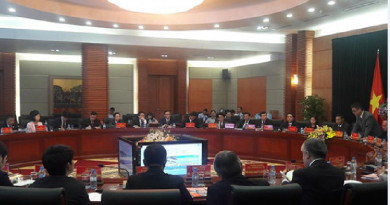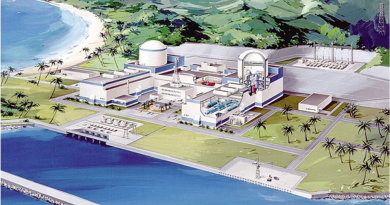Parliament approves EU-Vietnam free trade and investment protection deals

The EU-Vietnam trade agreement, the “most modern and ambitious agreement ever concluded between the EU and a developing country”, got Parliament’s backing on Wednesday.
MEPs gave their consent to the free trade agreement by 401 votes, 192 votes against and 40 abstentions. The “most modern, comprehensive and ambitious agreement ever concluded between the EU and a developing country” will contribute to setting high standards in the region, and could lead to a future region-to-region trade and investment agreement, said the Parliament, in an accompanying resolution adopted by 416 votes for, 187 against and 44 abstentions. The agreement is “a strong signal in favour of free, fair and reciprocal trade, in times of growing protectionist tendencies and serious challenges to multilateral rules-based trade”, MEPs stressed.
Almost all customs duties gone
The agreement will remove virtually all customs duties between the two parties over the next ten years, including on Europe’s main export products to Vietnam: machinery, cars, and chemicals. It extends to services such as banking, maritime transport and postal, where EU companies will have better access. Companies will also be able to bid on public tenders put out by the Vietnamese government and several cities, including Hanoi. The deal also safeguards 169 emblematic European products.
In addition, the agreement is an instrument to protect the environment and to sustain social progress in Vietnam, including labour rights. It commits Vietnam to apply the Paris Agreement. Vietnam committed to ratify two bills as requested by Parliament, one on the abolition of forced labour, the other on freedom of association, by 2020 and 2023, respectively.
The trade deal can be suspended if there are human rights breaches.
Check the details of the trade deal.
Dispute settlement between companies and state
Separately, the Parliament agreed by 407 votes for, 188 against and 53 abstentions to an investment protection agreement providing an investment court system with independent judges to settle disputes between investors and state. The accompanying resolution passed by 406 votes for, 184 against and 58 abstentions.
Quote
Rapporteur Geert Bourgeois (ECR, BE) said: “These state-of-the-art agreements just adopted present a unique opportunity to further the EU’s goal to become a geopolitical player that defends multilateral trade, rejects protectionism, and raises labour, environmental and human rights standards worldwide. The deals will boost prosperity, create new and better paid jobs, cut costs for companies big and small, and give them better access to each other’s markets.”
Watch his speech here.
Chair of the committee Bernd Lange (S&D, DE) said the following after the vote: “History shows that isolation does not change a country. That is why Parliament voted in favour of this trade agreement with Vietnam. With it, we strengthen the role of the EU in Vietnam and the region, ensuring that our voice has more weight than before. This is particularly important on issues on which we disagree, such as the role of the free press or political freedom. We also extend the room for manoeuvre of civil society. Our work from now on is to make sure the agreement is put into practice.” Watch his speech during the debate here.
Next steps
Once Council formally concludes the trade agreement and the parties notify each other that their procedures are closed, it can enter into force. For the investment protection agreement to enter into force, EU member states’ parliaments first need to ratify it.
Background
Vietnam is the EU’s second largest trading partner in the Association of Southeast Asian Nations (ASEAN) after Singapore, with trade in goods worth €47.6 billion a year and €3.6 billion when it comes to services. EU exports to the country grow by 5-7 percent annually, yet the EU’s trade deficit with Vietnam was €27 billion in 2018.
The main EU imports from Vietnam include telecommunications equipment, clothing and food products. The EU mainly exports goods such as machinery and transport equipment, chemicals and agricultural products to Vietnam.
Source: www.europarl.europa.eu







